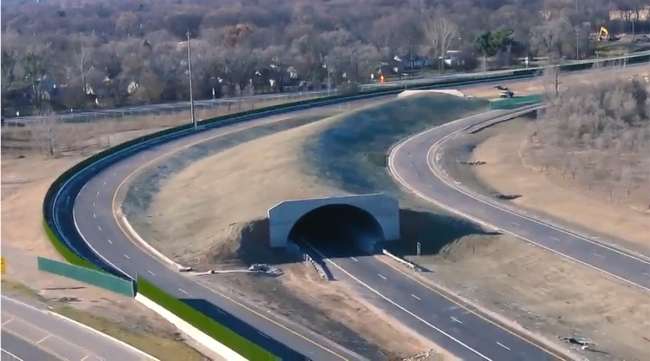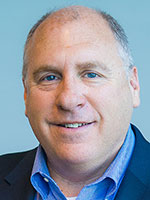Microsoft Joins Self-Driving Vehicle Development at Michigan Test Center

On a blustery spring day that showed exactly why Michigan’s range of weather is perfect for testing self-driving and connected vehicles, the American Center for Mobility formally opened and announced a far-reaching deal April 4 with Microsoft.
“Intelligent vehicle technology is evolving rapidly and Michigan is the world leader in making sure the mobility technologies driving the future are safely developed, tested and eventually deployed,” said Gov. Rick Snyder, one of several dignitaries on hand.
Automakers and suppliers already have been testing vehicles and technologies at the 330-acre facility on the grounds of the historic World War II B-24 bomber plant in Willow Run.
“This gives us a safe and controlled environment” to develop technologies, Michael Ingrody, lead systems engineer for supplier Visteon’s Drive Core autonomous system, said as a 2017 Lincoln MKZ sedan executed hands-free lane changes on the test track April 4.
The need to develop self-driving systems on a dedicated proving grounds like ACM has come into sharp focus after fatal accidents with an autonomous Uber test car and a Tesla using that company’s Auto Pilot driving assistant.

Maddox
ACM provides urban and suburban settings as well as highways and computer simulations to test autonomous and connected vehicle systems to the breaking point and beyond, said John Maddox, the facility’s president and CEO. There’s even a curving 700-foot tunnel to test how self-driving systems perform when they’re cut off from GPS, satellite and cloud data.
ACM “is the first safe environment where we can test and validate autonomous vehicles,” said Kevin Dallas, Microsoft vice president of artificial intelligence and cloud business development. It’s also the first one with a partner for cloud computing, Maddox said. Microsoft’s secure Azure cloud will handle terrabytes of proprietary information for companies testing at ACM, and work on cybersecurity for autonomous vehicles.
ACM used U.S. Department of Transportation research to design an intersection with six lanes in all four directions that allows testers to simulate conditions on the 40 most dangerous intersections in the country.
Michigan’s climatic range, from hot summer days to torrential rain, fog and blizzards, allows companies to test safely in a wide range of conditions that can challenge the sensors self-driving vehicles use.
Distributed by Tribune Content Agency, LLC

